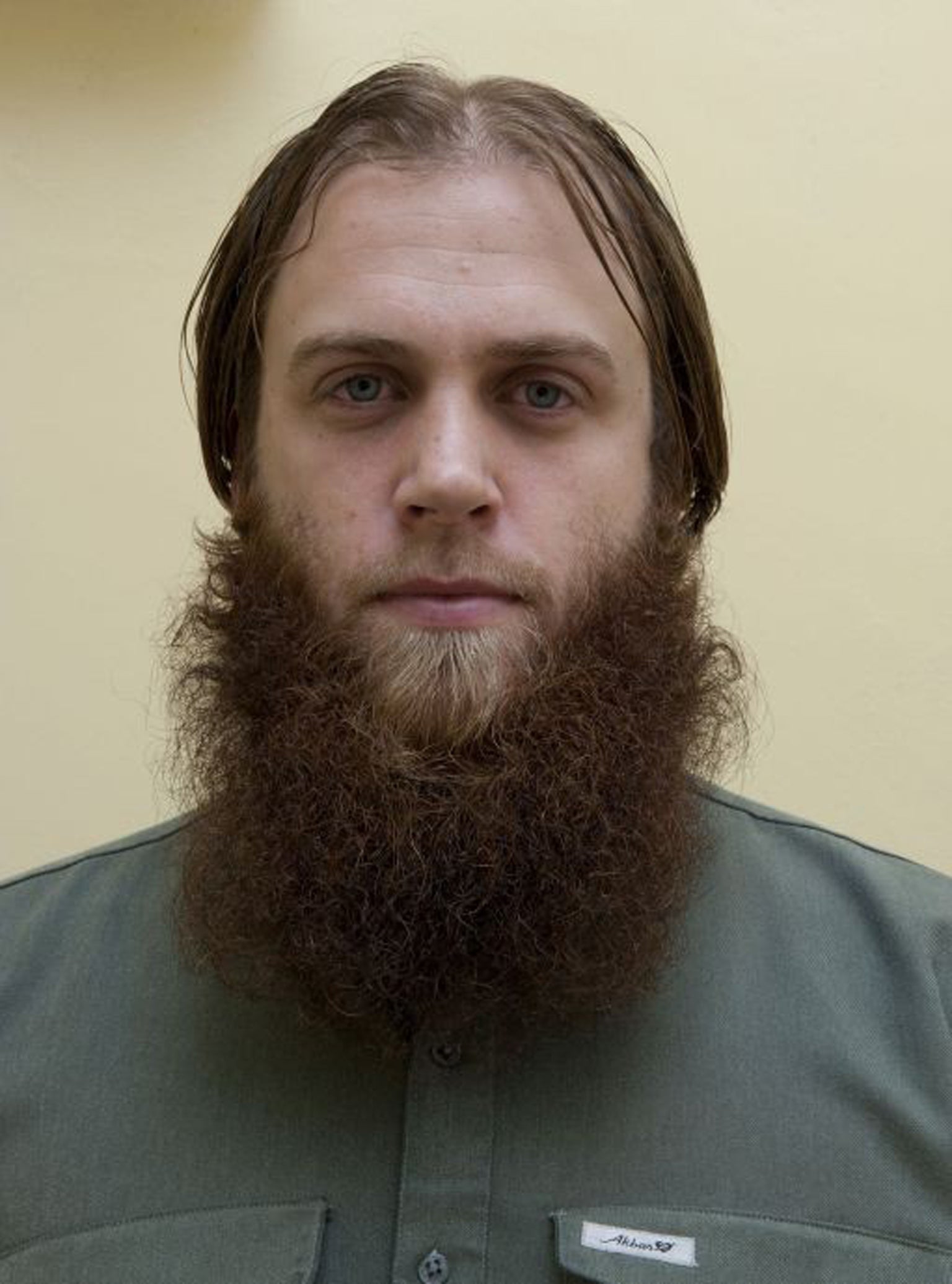White Muslim convert defies judge as he is jailed for terror offences
When ordered to stand, he refused saying 'I don't wish to stand up because I believe ruling and judgement is only for Allah'

Richard Dart, the middle class boy from Dorset who turned into an Islamic extremist, remained defiant to the bitter end as a judge gave him an extended jail sentence for being a dangerous terrorist today.
The 30-year-old son of teachers from Weymouth, who shocked his family when he became a militant Muslim, sat in the dock, clad in a skull cap and traditional dress, as he was sentenced after pleading guilty to preparing for acts of terrorism.
When ordered to rise by Mr Justice Simon, he refused, proclaiming: "I don't wish to stand up because I believe ruling and judgement is only for Allah.". As he was led away to start a sentence of 11 years, he nodded to a lone Islamic young man in the public gallery, his family nowhere to be seen.
Dart, the Old Bailey heard, had talked of terror attacks in the UK, of wreaking devastation on Wootton Bassett, a town that for many years gathered to honour the funeral corteges of dead soldiers, or MI5 and MI6 targets. He travelled to Pakistan, carrying thousands of pounds to pay for training with the local Taliban, a militant group known for mass suicide attacks on civilians, but failed and was forced to return to the UK.
His defence was that civilians were not his target, instead he had wanted to fight Nato soldiers in Afghanistan.
Today Dart, a former BBC security guard from Ealing, and his two fellow accomplices were jailed for a total of more than 20 years after each one admitted engaging in conduct in preparation of acts of terrorism between July 2010 and July 2012.
The judge told Dart and Mahmood: "I'm satisfied to the required criminal standard that neither of you had ruled out an attack in the United Kingdom, and that you, Mahmood, were looking at arming yourself with a bomb."
"It clear that you are all committed fundamentalists whose ultimate intent was to commit acts of terrorism," he added.
Mr Justice Simon said that both Dart and fellow Brit Imran Mahmood, 22, were dangerous characters and, as such, would receive extended sentences, for which they would not be considered for parole for at least two thirds of their term and then be released under a strict licence. Dart received six year custodial sentence with a five-year licence while Mahmood, of Northolt, was told he would serve nine years nine months in custody with a five-year licence.
Jahangir Alom, 26, a failed police community support officer and territorial army soldier from Stratford, London, who travelled with Dart to Pakistan on their unsuccessful attempt to seek terror training was jailed for four years and six months.
Mark Topping, specialist counter-terrorism lawyer for the Crown Prosecution Service, said: "When Richard Dart, Jahangir Alom and Imran Mahmood were making plans for two of them, Dart and Alom, to fly to Pakistan, they did not expect those travels to lead them to the dock at the Old Bailey and jail.
"But this case serves as another reminder that those who take steps to travel abroad for the purposes of preparing for terrorism can and will be prosecuted here in the UK.
"Although the men did not identify any specific targets for an attack, their determination and intent were very clear.
"The training that Dart and Alom sought, and which Mahmood attempted to assist with, would have taught Dart and Alom the skills and techniques necessary to commit acts of terrorism both aboard and in the United Kingdom.
"Mahmood had already undertaken training and was already asking Dart for help in locating a book that would allow him to make home-made explosives.
"This was a prosecution that was based on the most high-tech and sophisticated evidence gathering available.
"These state of the art techniques not only left the defendants little choice but to plead guilty but also increasingly restrict the ability of terrorists to hide their intentions from the authorities."
Bookmark popover
Removed from bookmarks